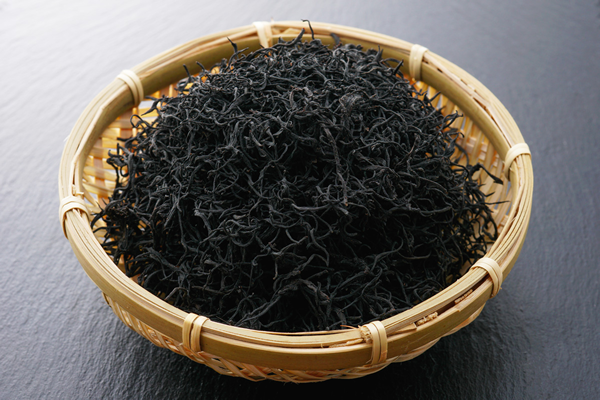Consumption of hijiki seaweed
What is it and why it might be a concern.
-
What is hijiki seaweed?
Hijiki seaweed (also known as hiziki, MeHijiki or Hizikia fusiforme) is easy to distinguish from other seaweeds because of its distinctive black and shredded appearance. It is usually sold for use in soups, salads and vegetable dishes. It is mainly used in Japanese or Korean restaurants as an appetiser or starter. It is not the seaweed used in sushi. Hijiki seaweed can also be found in health food stores and shops selling Asian or eastern food products.
-
Can I eat hijiki seaweed?
Recent sample results from around the world have shown that hijiki seaweed is generally high in inorganic arsenic. In light of this, the FSAI advises consumers to limit their consumption of hijiki seaweed or choose alternative types of seaweed, where possible.
-
What is arsenic?
Arsenic is a semi-metallic element that occurs in nature, mainly in combination with other minerals. Trace levels of arsenic occur naturally in air, food and water. Exposure from these low levels is not a health concern. Arsenic compounds may enter the environment through sources such as pesticide manufacturing, smelter and industrial operations, burning fossil fuel or cigarette smoke.
-
Organic versus Inorganic?
Not all forms of arsenic are associated with serious health concerns. Organic arsenic is considered to be relatively non-toxic. It is commonly found in most seaweed and other marine foods. Exposure to organic arsenic from most seaweed and other marine foods has not been associated with human illness. However, inorganic arsenic compounds are relatively toxic, and can increase people’s risk of getting cancer. It is therefore wise to minimise exposure to inorganic arsenic where possible.
-
What is the advice from the European Food Safety Authority (EFSA)?
In September 2009, the European Food Safety Authority’s Expert Panel on Contaminants recommended that dietary exposure to inorganic arsenic should be reduced (this opens in a new tab) and as a consequence, EU wide regulation of inorganic arsenic in foods is currently under discussion.
-
What should the industry be doing?
Manufacturers who are packaging hijiki seaweed or producing food products containing hijiki seaweed as an ingredient should provide advice about limited consumption on the food label.

